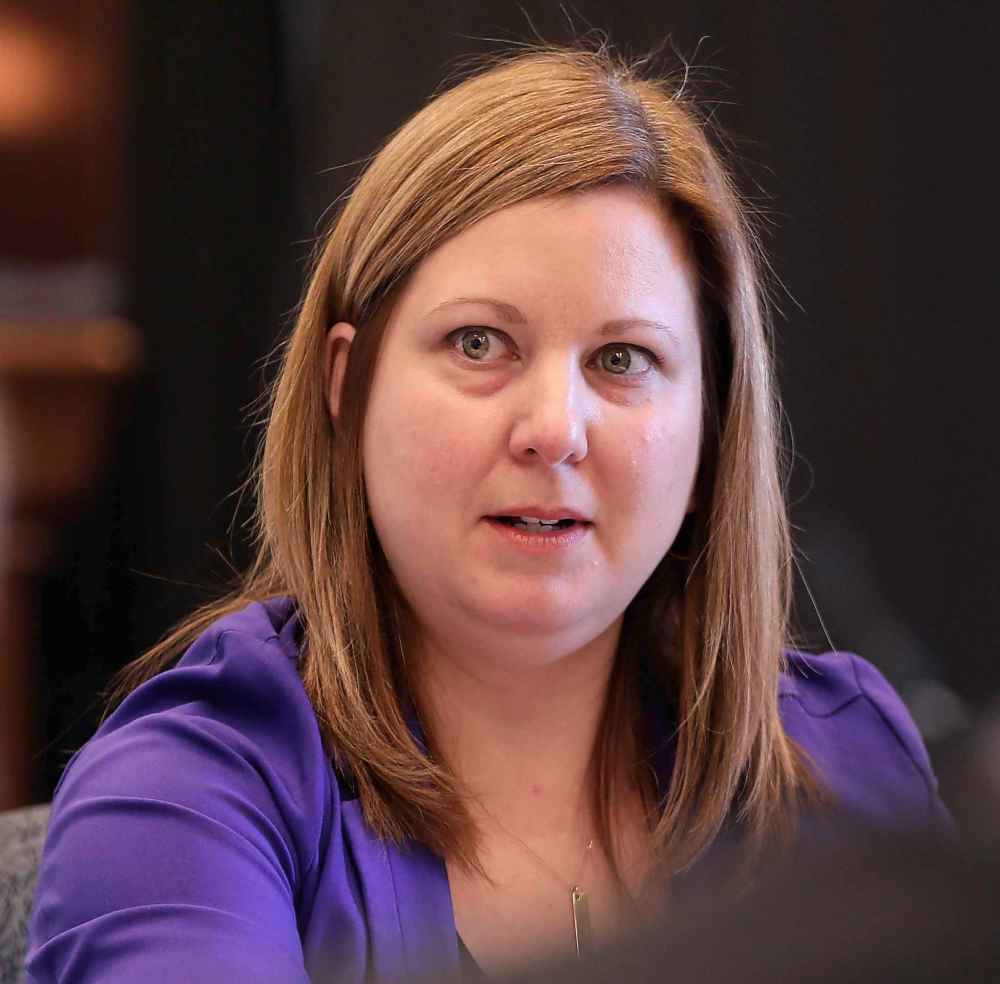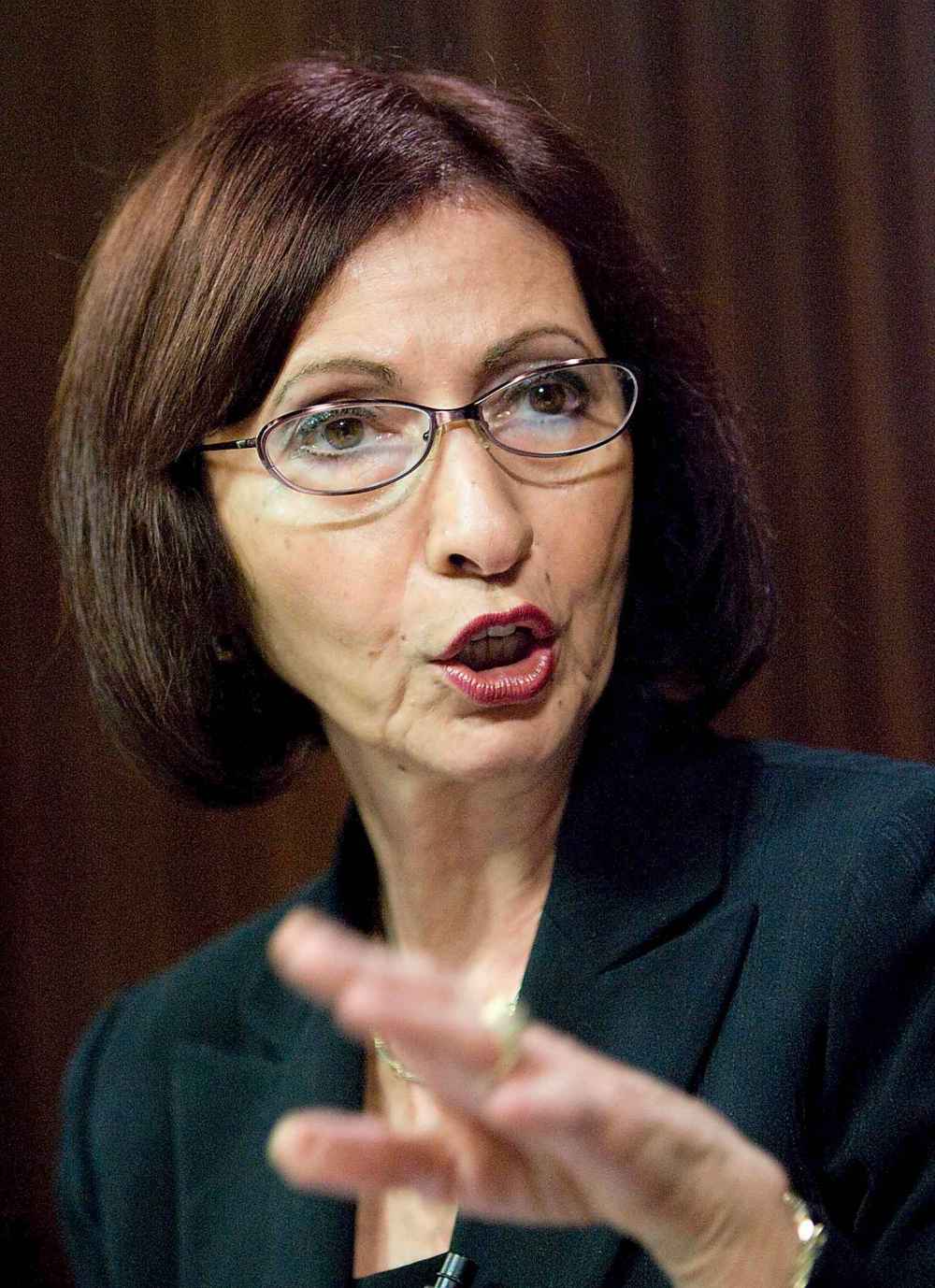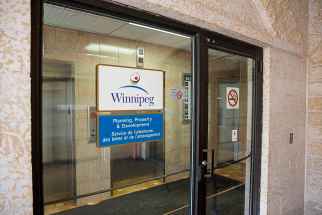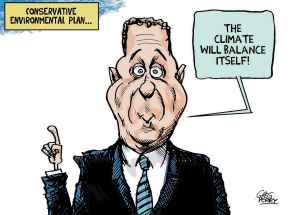Federal Conservative texts irk some voters
Read this article for free:
or
Already have an account? Log in here »
To continue reading, please subscribe:
Monthly Digital Subscription
$0 for the first 4 weeks*
- Enjoy unlimited reading on winnipegfreepress.com
- Read the E-Edition, our digital replica newspaper
- Access News Break, our award-winning app
- Play interactive puzzles
*No charge for 4 weeks then price increases to the regular rate of $19.00 plus GST every four weeks. Offer available to new and qualified returning subscribers only. Cancel any time.
Monthly Digital Subscription
$4.75/week*
- Enjoy unlimited reading on winnipegfreepress.com
- Read the E-Edition, our digital replica newspaper
- Access News Break, our award-winning app
- Play interactive puzzles
*Billed as $19 plus GST every four weeks. Cancel any time.
To continue reading, please subscribe:
Add Free Press access to your Brandon Sun subscription for only an additional
$1 for the first 4 weeks*
*Your next subscription payment will increase by $1.00 and you will be charged $16.99 plus GST for four weeks. After four weeks, your payment will increase to $23.99 plus GST every four weeks.
Read unlimited articles for free today:
or
Already have an account? Log in here »
Hey there, time traveller!
This article was published 10/07/2019 (2344 days ago), so information in it may no longer be current.
With a federal election just months away, Manitobans are scratching their heads over one political party’s new get-out-the-vote technique.
The Conservative Party of Canada is testing “virtual door-knocking” ahead of the federal election scheduled for Oct. 21.
Local MLA not behind ‘Sarah’ texts
Fort Richmond Tory MLA Sarah Guillemard has had a few confused constituents wonder why she’s been texting them so much lately.
The automated texts come from computers used by a third-party vendor that was contracted by the Conservative Party of Canada this spring. The computer system often uses short names such as Sarah, Lisa or Amy, to relay its messages.
Fort Richmond Tory MLA Sarah Guillemard has had a few confused constituents wonder why she’s been texting them so much lately.
The automated texts come from computers used by a third-party vendor that was contracted by the Conservative Party of Canada this spring. The computer system often uses short names such as Sarah, Lisa or Amy, to relay its messages.
“If you receive a text from ‘Sarah with the Conservative party of Canada’… it’s not me!” Guillemard tweeted this week.
“Just heard from someone in Fort Richmond that they responded to my text & asked me to stop in for a visit & coffee… wondering why I didn’t reply back!”
Though she’s not affiliated with the federal party’s text, Guillemard said she’s been using it for her own outreach campaign.
“It gave me an opportunity to share details about ways our provincial PC team is making life more affordable for Manitoba families,” she said by email. “Even though it wasn’t my text or one from our campaign, I am benefiting from the interactions.”
-Jessica Botelho-Urbanski
During Alberta’s election campaign in March and April, the NDP and the United Conservative Party also texted voters. Media reports quoted some voters as being frustrated with the tactic.
Shelley Cook, an undecided Winnipeg voter, received a text from “Sarah from the Conservative party” on Wednesday that left her baffled.
“Sarah” asked if the party could count on her support in the upcoming federal election and prompted her for a text reply, yes or no. Cook, who isn’t involved with the party, said she didn’t respond.
“It’s very telemarket-y and I think it’s annoying,” she said. “I think it’s actually kind of annoying when they come to my door, too. But… at least you know if they’re in the area, they’re knocking on everybody’s doors.
“This way, it’s just random texts and you’re like: ‘Huh? How’d you get my number?’”
Conservative party director of communications, Cory Hann, said the party isn’t phasing out old-fashioned door-knocking. Its candidates have knocked on almost two million doors this year. The party’s texting campaign, which started in the spring, has reached thousands more Canadians, he said.
“It’s very telemarket-y and I think it’s annoying.”
– Shelley Cook, an undecided Winnipeg voter who received a text message from the Conservative Party
The Conservatives teamed up with a third-party vendor, Toronto-based Responsive Marketing Group, to contact voters. Some of the text recipients are party faithful whose numbers were already on a list, while other numbers are randomly generated via computer.
Hann said the random text messages, sent to some without their consent, don’t constitute an invasion of privacy.
“These are randomly generated, so it’s not as if we have some list we can use. So just as we’re walking down a street and decide to randomly knock on a door, we’re doing this virtually with text messaging,” he said.

“Obviously anyone that doesn’t want to receive the messages, they can simply reply to that message saying they don’t want them… or call and leave a message and we’ll make sure they’re added to our internal ‘do not contact’ list.”
Ann Cavoukian, a former privacy commissioner in Ontario, argues political text messages and robo-calls are intrusive and should be regulated. Federal privacy commissioner Daniel Therrien has urged Prime Minister Justin Trudeau to introduce rules about how political parties collect citizens’ data.
“To invade someone’s privacy that way, with the calls and the texts, that’s completely unacceptable. And I don’t want it to be presented in any other way,” Cavoukian said.
The Conservatives began texting Canadians just before the federal carbon tax kicked in on April 1, telling those in affected provinces affected, such as Manitoba, their gas prices were about to jump. The party has since broadened its messaging to gauge support before the federal election.
Hann said the party considers the voter outreach a success so far, noting, “we’re continuing to use (texting) for a reason. If it wasn’t working, we wouldn’t use it.”
Cook said she would like to join a ‘do not contact’ list for political parties. However the texts don’t break anti-spam law under rules governed by the Canadian Radio-television and Telecommunications Commission.
Cavoukian is pushing for legislative change, “because why would political parties get a free pass?”
“People might say, ‘Oh it’s not a big deal, it’s just an annoyance.’ But privacy forms the foundation of our freedom,” she said.
“If you don’t have a solid foundation of privacy, you’re not going to have free and democratic societies.”
jessica.botelho@freepress.mb.ca
Twitter: @_jessbu

Liberals, NDP weigh into texting debate
While the Liberal Party of Canada hasn’t been texting voters ahead of the federal election yet, a party spokesman noted they have used the strategy with supporters before, including contacting them about a campaign rally scheduled during a B.C. byelection in 2017.
“While we don’t comment on the specifics of campaign strategy, peer-to-peer text messaging is one way in which the Liberal Party has mobilized supporters and volunteers to be more involved in the Party,” Liberal spokesman Parker Lund said by email.
For its part, the federal NDP probably won’t be blowing up Canadians’ phones with texts this year.
“As texting continues to be an increasingly popular tool for communication, we are evaluating how it fits into our overall digital and voter engagement strategy. Having said that, we have no plans to utilize mass, unsolicited texting programs,” NDP spokesman Guillaume Francoeur said.
— Jessica Botelho-Urbanski
History
Updated on Thursday, July 11, 2019 9:46 AM CDT: Adds comments from Parker Lund and Guillaume Francoeur









